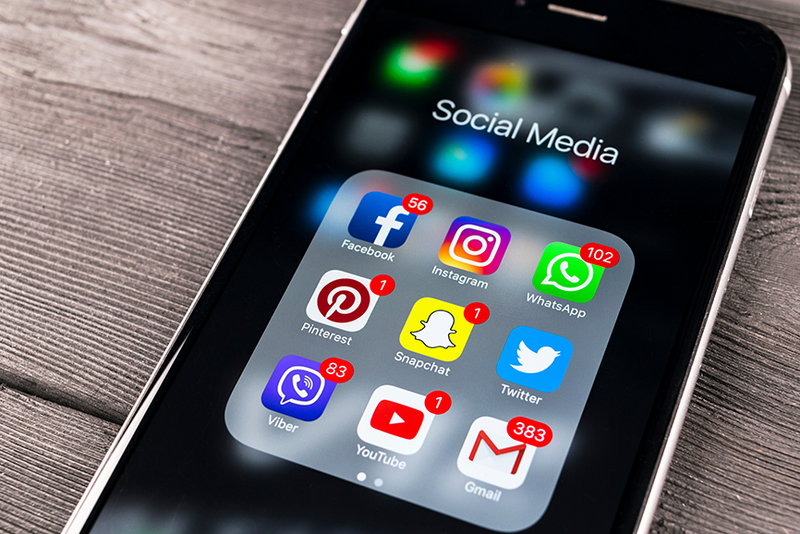
Social media has become an integral part of our daily lives. With billions of people around the world logging on to various social media platforms every day, it's undoubtedly revolutionized the way we communicate with others. It's also becoming increasingly clear that this broadcast platform is not sustainable for healthy living. From physical health to mental wellbeing, social media use can have a wide range of negative effects on our health and lifestyle.
Why is Social Media Not Good for Health?
Social media has a negative impact on physical health. With people spending more time sitting in front of their screens, they certainly have less time to engage in physical activity. This sedentary behavior can lead to a range of health problems, including obesity, heart disease, and diabetes. Additionally, social media use can lead to sleep disturbances, as many users stay up late scrolling through their feeds or checking notifications.
Another reason why social media is not good for our health is because it can lead to addiction and compulsive behavior. Social media platforms are designed to be addictive, with features such as notifications and likes triggering the release of dopamine in the brain. This can lead to a cycle of compulsive social media use, which can interfere with daily life and cause stress and anxiety.

How Does Social Media Have a Negative Impact on Lifestyle?
In addition to its negative impact on physical health, social media can also have a negative impact on lifestyle. With the constant stream of information and notifications, social media use can lead to decreased productivity and time management issues. People may find themselves spending hours scrolling through their feeds or checking notifications, which can interfere with work or other important tasks.
Additionally, social media can contribute to a lack of real-life social interaction and experiences. People may spend so much time on social media that they miss out on opportunities to connect with others in person or engage in real-life experiences. This can lead to feelings of loneliness and isolation, which can have negative effects on mental health.

Social Media Can Destroy Our Mental Health
Social media can have a wide range of negative effects on mental health. One of the primary ways that social media can impact mental health is through the development of anxiety and depression. Social media use can lead to feelings of inadequacy and low self-esteem, as people compare their lives to the carefully curated highlight reels of others. Additionally, social media can contribute to the spread of misinformation and conspiracy theories, which can lead to increased anxiety and stress.

What Makes Social Media So Toxic Now?
Social media has become increasingly toxic in recent years, with controversial and divisive content becoming more prevalent on social media platforms. One reason for this is the role of social media algorithms in promoting controversial and divisive content. These algorithms are designed to keep people engaged on the platform, and controversial content is often more engaging than neutral content.
Additionally, social media can contribute to online harassment and bullying. Hiding behind a vitual firewall, people may feel emboldened to say things online that they would not say in person. This can lead to hurtful and harmful interactions. These negative effects can have a framatic effect on mental health and wellbeing, as highlighted in the Netflix documentary, The Social Dillema.

Social Media Surges Dopamine and Destroys Oxytocin
Social media can have a range of effects on the human brain, including addiction and cognitive overload. Social media is designed to be addictive, with features such as notifications and likes triggering the release of dopamine in the brain. This can lead to compulsive social media use, which can interfere with daily life and cause stress and anxiety.
Additionally, social media can lead to information and cognitive overload. With the constant stream of information and notifications, people may find it difficult to focus or retain information. This can lead to feelings of overwhelm and stress, especially when the temporary affects of dopamine wear off.
Social media can contribute to the breakdown of friendships, family relationships, and oxytocin in the human brain. Oxytocin, sometimes called the love hormone, is critical to physical and mental health. People engaging in hurtful interactions online may actually decrease their oxytocin levels. This change in brain chemistry may actually contribute to further neglect of real-life relationships.

Now What?
It doesn't take an expert to understand that the overuse of social media is not sustainable to healthy living. From its negative impact on physical health to its toxic and addictive nature, social media can have a range of negative effects on our health and lifestyle. While it is important to stay connected with others and engage with social media in a healthy way, it is also important to be mindful of our social media use and its impact on our wellbeing. By taking steps to limit our social media use and prioritize real-life interactions and experiences, we can work towards a healthier and more fulfilling life.
Select a box to get started.
Pack whatever fits... we'll sort it all.
Simply pay unit digitizing prices.
















